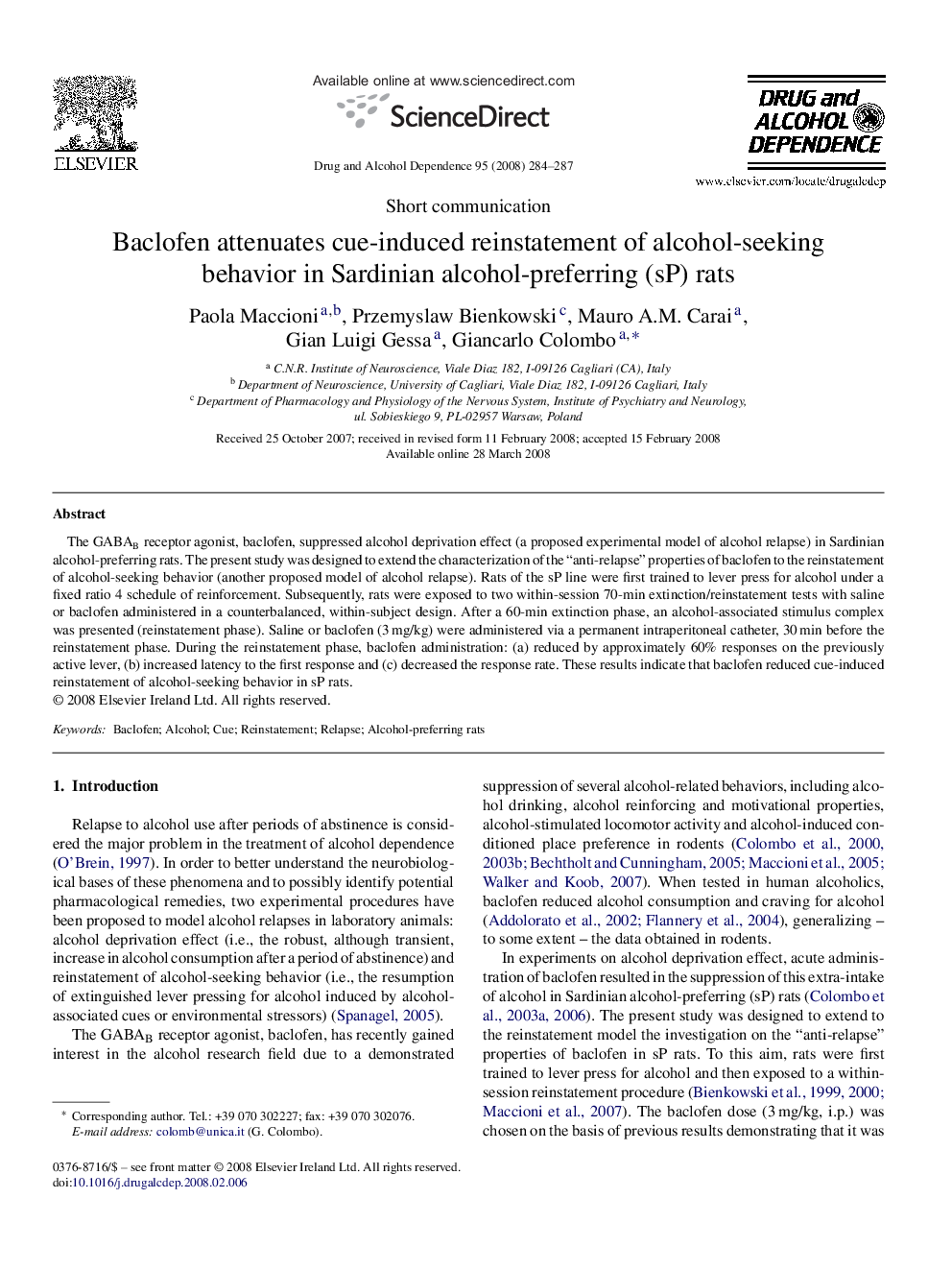| Article ID | Journal | Published Year | Pages | File Type |
|---|---|---|---|---|
| 1071052 | Drug and Alcohol Dependence | 2008 | 4 Pages |
Abstract
The GABAB receptor agonist, baclofen, suppressed alcohol deprivation effect (a proposed experimental model of alcohol relapse) in Sardinian alcohol-preferring rats. The present study was designed to extend the characterization of the “anti-relapse” properties of baclofen to the reinstatement of alcohol-seeking behavior (another proposed model of alcohol relapse). Rats of the sP line were first trained to lever press for alcohol under a fixed ratio 4 schedule of reinforcement. Subsequently, rats were exposed to two within-session 70-min extinction/reinstatement tests with saline or baclofen administered in a counterbalanced, within-subject design. After a 60-min extinction phase, an alcohol-associated stimulus complex was presented (reinstatement phase). Saline or baclofen (3Â mg/kg) were administered via a permanent intraperitoneal catheter, 30Â min before the reinstatement phase. During the reinstatement phase, baclofen administration: (a) reduced by approximately 60% responses on the previously active lever, (b) increased latency to the first response and (c) decreased the response rate. These results indicate that baclofen reduced cue-induced reinstatement of alcohol-seeking behavior in sP rats.
Related Topics
Life Sciences
Neuroscience
Behavioral Neuroscience
Authors
Paola Maccioni, Przemyslaw Bienkowski, Mauro A.M. Carai, Gian Luigi Gessa, Giancarlo Colombo,
